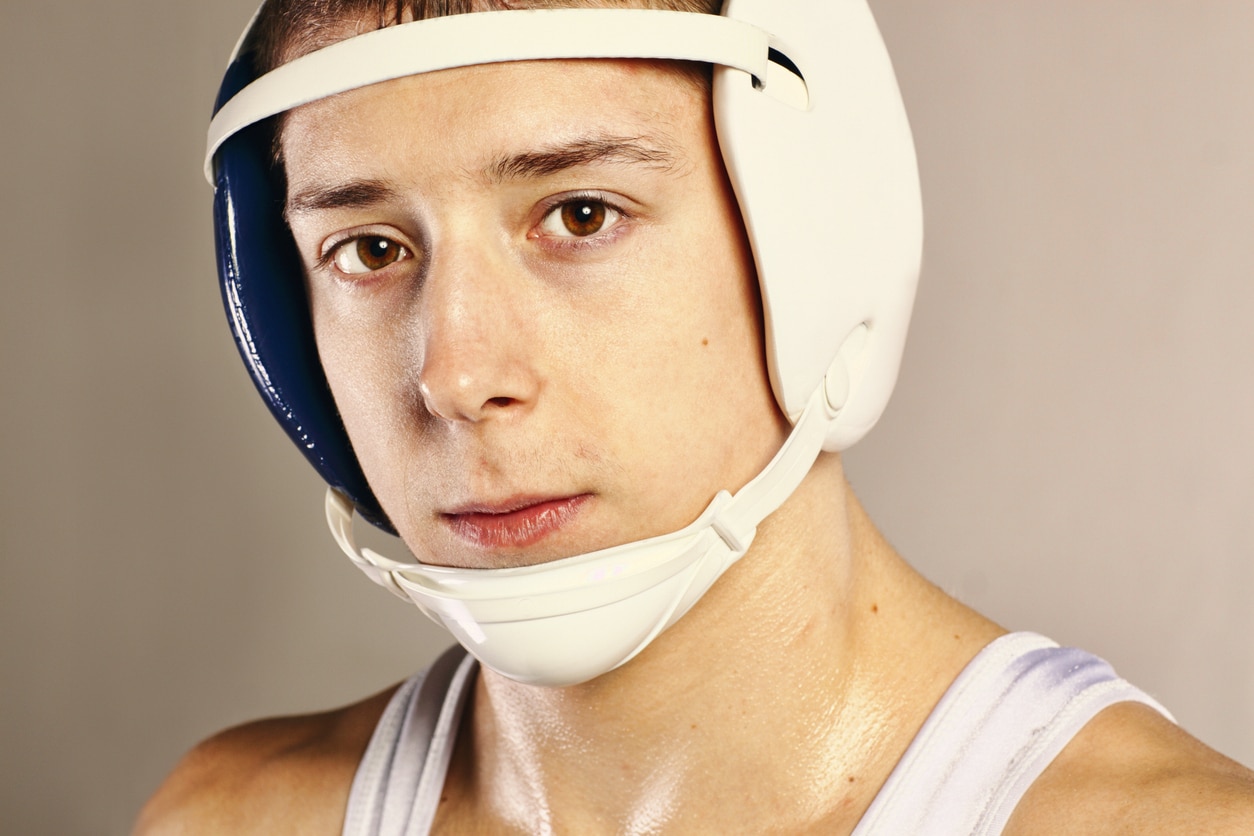When thinking of ways to protect the body during sports, ear protection might not be something that’s initially considered. However, some sports, especially in the fall season, pose distinct challenges that could impact your ear health. Taking simple precautions can safeguard your ears, helping you enjoy the sports season free from discomfort or injury.
Here are a few sports where ear protection is important:
Football

Football is a contact sport with hard impacts that increase the risk of ear injuries. While helmets are designed to shield the head, they don’t always offer full protection for the ears.
A common issue is an ear contusion, which occurs when a blow to the side of the head damages the soft tissue of the ear. Although generally minor, recurring ear contusions can pose a threat to ear function over time.
To safeguard your ears during football games:
- Ensure a snug helmet fit: A helmet that fits properly will provide full coverage for the ears, preventing unnecessary force from impacting them. A loose helmet could leave the ears vulnerable.
- Consider ear protection in loud environments: Football games, both on the field and in the stands, can be extremely loud. To prevent noise-induced discomfort or hearing issues, using ear protection in particularly noisy settings is advisable.
Wrestling
Wrestling also presents challenges for ear safety, as it’s a contact-heavy sport. One of the most common conditions linked to wrestling is “cauliflower ear,” which occurs due to repeated trauma or friction, causing swelling and hardening of the ear tissue. This condition can happen to anyone but is particularly prevalent in wrestlers, boxers and martial artists.
To minimize ear injury while wrestling:
- Wear protective headgear with ear guards: Essential for wrestlers, this type of headgear helps shield the ears from blows and prevents fluid buildup or damage that may lead to cauliflower ear.
- Seek medical care for injuries promptly: If you notice any signs of swelling or bruising around your ears, getting it checked immediately can prevent permanent damage or more serious treatments like surgery.
Indoor Swimming
Though swimming doesn’t involve physical contact, it poses its own risks to ear health. Water from the pool can become trapped in the ear canal, which can lead to infections like swimmer’s ear, also known as otitis externa.
To keep your ears healthy while swimming at places like Tri-City Leisure Center:
- Use waterproof earplugs: Well-fitted, waterproof earplugs can prevent water from entering your ear canal, lowering the chances of infection.
- Dry your ears thoroughly post-swim: After a swim, gently dry your ears with a towel and tilt your head to drain any excess water. You can also use over-the-counter ear drops to help evaporate trapped moisture.
As you gear up for fall sports, don’t forget to include ear protection in your routine. Just like other parts of the body, protecting your ears is crucial to maintaining overall health, particularly when it comes to preventing ear, nose and throat issues.
To learn more about how to keep your ears healthy and maintain optimal ENT health, schedule an appointment with Palmetto ENT & Allergy today.
